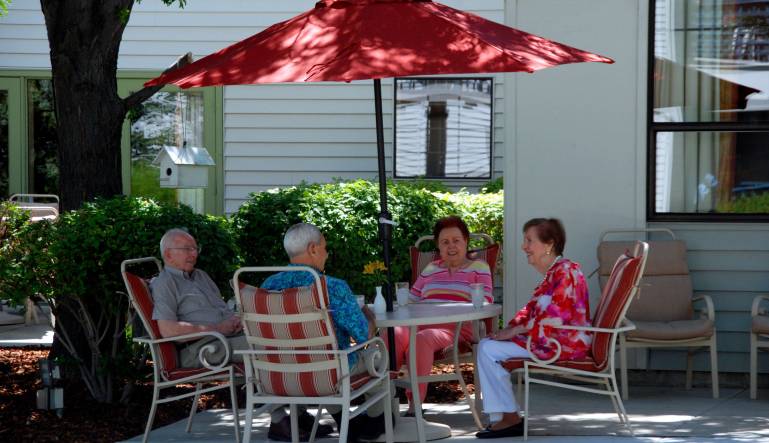As a family caregiver, your days are likely hectic. Caring for a spouse or parent whose health is declining leaves little time for anything else. Caregivers are often unaware that self-care should be a vital part of a senior loved one’s caregiving plan.
When a spouse or adult child fails to care for their health, they may experience burnout or a medical crisis of their own. Initially, it may be minor health problems, such as headaches or fatigue. As time passes, however, caregivers may experience serious health issues, like back injuries, diabetes, and depression.
Respite care can be a solution for helping busy caregivers make time for themselves.
What is Respite Care?
Respite care services are designed to support family caregivers. They assist by giving the senior a safe place to stay while their caregivers take a break or enjoy a vacation. Respite guests can stay at an assisted living community for a few days or even a few weeks. Despite how easily accessible these programs are, few families take advantage of them.
According to a study by the National Alliance of Caregiving and AARP, only 12 percent of family caregivers utilize respite care. Many times it is because the caregivers are unaware of respite, other times it is because they feel guilty turning a loved one’s care over to someone else. Experts say routinely using respite services actually makes the family member a better caregiver.
For more information, read our “What is Respite Care? Everything You Need to Know About Respite Care Services” guide.
How to Use Respite Care Effectively When You Are a Family Caregiver
Here are a 5 of the main reasons why caregivers should explore respite services for a loved one:
- Time to recharge: Caregiving is mentally and physically exhausting. No matter how much you relish caring for a loved one, taking time out to recharge is vital.
- Maintain health: Caregivers are notorious for neglecting their own health while caring for a loved one, including falling behind on routine physicals and health screenings. Remind yourself if you take a little time now to stay on top of health needs, you will lower your risk of a medical emergency that prevents you from caregiving altogether.
- Catch up at home: While cleaning out closets or scheduling a handy man to do household repairs isn’t very exciting, they are tasks that must be done. Scheduling respite care on a routine basis will give you the time you need to feel more in control of your own life and home.
- Enjoy family time: Caregivers frequently experience bouts of loneliness or even depression. While caring for a loved one may be rewarding, it can also be isolating. Respite services allow caregivers to take time out to enjoy themselves without worrying about their loved one.
- Create an emergency plan: No one likes to think the worst will happen. When you are a caregiver, however, it’s important to have an emergency backup plan. In the event you experience a medical crisis or are otherwise unable to care for your loved one, knowing there is a plan in place will allow you to rest easier. Trying the respite care services at an assisted living community in your area will allow you to be better prepared.
Respite Care at Five Star Senior Living
Short-term respite is a popular service at Five Star Senior Living communities across the country. Respite guests enjoy the same services, support, and amenities as long-term residents. Contact us to learn more or to schedule a respite stay for a senior loved one today!
Contact Us Today
"*" indicates required fields

